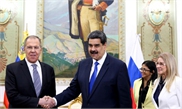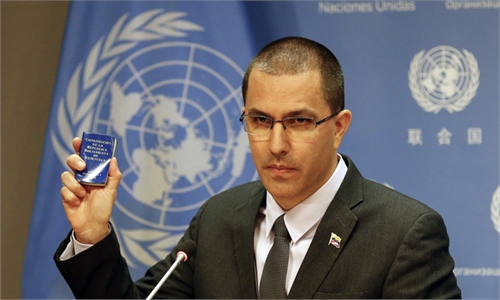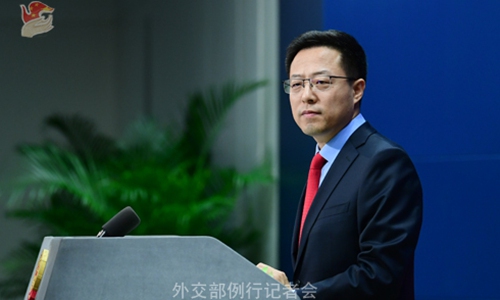
General view of Colonia Tovar, in Colonia Tovar, Tovar Municipality, Aragua state, Venezuela, on November 13 Photo: VCG
US sanctions on China National Electronics Import & Export Corp (CEIEC) for allegedly "supporting Venezuelan President Nicolas Maduro's efforts to undermine democracy" represent the suppression of Chinese companies under false pretenses, and the move is a typical instance of long-arm jurisdiction on China's mutually beneficial cooperation with Venezuela, experts said.
On Monday, the US imposed sanctions on CEIEC, claiming that it was supporting Maduro's efforts to undermine democracy.
According to a statement by the US Treasury Department, CEIEC is accused of supporting Maduro in "efforts to restrict internet services and conduct digital surveillance and cyber operations against political opponents".
"The United States will not hesitate to target anyone helping to suppress the democratic will of the Venezuelan people and others around the world," the statement read.
CEIEC did not immediately respond to a request for comment by the Global Times.
China's cooperation with Venezuela is in line with international rules under the principles of mutual development and should not be politicized, Hua Chunying, spokesperson for China's Foreign Ministry said, adding that China will take necessary measures to protect the rights of Chinese companies.
CEIEC is a Chinese trading company that provides electronics systems specializing in engineering and defense, according to its website. According to the statement by the US Treasury, CEIEC has been providing software and technical expertise to Venezuelan government entities, including its state communications company Venezuelan National Telephone Co.
Jiang Shixue, director of the Center for Latin American Studies at Shanghai University, told the Global Times that an underdeveloped infrastructure caused by underinvestment is the main barrier to Latin America's development, and China's technical support and investment have played a key role in addressing these problems.
The accusation from the US ignores the legitimate status of the Venezuelan government, and it is a form of a long-arm jurisdiction in other countries' politics, Jiang said.
Last week, Zhao Lijian, spokesperson at China's Foreign Ministry, said at a regular press briefing in Beijing that China will carry out cooperation with Venezuela, after a US Treasury Department spokesperson reportedly said that "those engaged in activity in the Venezuelan oil sector risk exposure to US sanctions."
The report said that two state-owned companies - China National Petroleum Corp and PetroChina - had stopped importing crude oil and fuel from Venezuela in August 2019.
Zhao noted that cooperation between China and Venezuela is based on mutual benefit, equal footing and commercial principles, and is in line with relevant laws.



